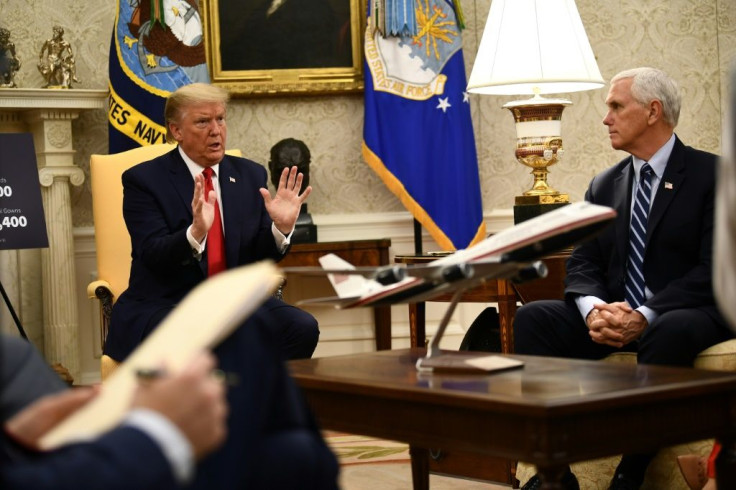Coronavirus Test At White House May Miss Half Of All Positive Cases: Study

KEY POINTS
- Abbott Laboratories' coronavirus test is being used at the White House
- An NYU study found it may miss as much as half of all confirmed cases
- These figures are not final, however, as the study has yet to be peer-reviewed
The coronavirus test created by Abbott Laboratories that is being used at the White House and other prominent locations to get rapid results may miss as many as half of all positive cases, according to a new report from New York University. The findings have yet to be confirmed, but they raise serious questions about the efficacy of a test that President Trump said during a press conference was “a whole new ballgame,” as it would “deliver lightning-fast results in as little as five minutes.”
NYU’s analysis found that compared with a rival test, the one developed by Abbott Laboratories missed at least a third of positive coronavirus cases and as much as 48% when compared to the dry nasal swabs. The findings have yet to be peer-reviewed and are not conclusive.
Abbott Laboratories said that "the researchers didn’t use the test as intended and that the false-negative rate, as reported to the company, is 0.02%," Bloomberg reported.
STAT was the first to report issues with the test last month, writing that “Abbott’s initial guidance on how to administer the test — guidance approved by the Food and Drug Administration — could lead to an unspecified number of false negative results. Abbott says changing how samples are collected should fix the problem.”
Alan Wells, a pathologist who directs the clinical laboratories at the University of Pittsburgh Medical Center, told STAT last month that the test “performed equivalent to the other platforms with patients that had high and moderate loads of virus, however, with lower loads of virus, a large fraction of these patients were not detected as positive.”
This ordeal is yet another example of the difficulty researchers and medical experts are having in understanding the novel coronavirus. Most lab tests for viruses and other pathogens can take years before researchers fully understand the nature of what they are studying, and the coronavirus has only been in existence for a few months (as far as experts know).
The record for the fastest vaccine ever developed is four years for the mumps, which helps to contextualize the scale of the challenge in studying the coronavirus. The world is allocating massive amounts of resources to combat the coronavirus, and should a vaccine be possible to create, it is likely that four-year record will be broken, but the difficulties Abbot Laboratories is having in perfecting their test is likely a harbinger of the broader struggles to come over the coming months.
© Copyright IBTimes 2025. All rights reserved.




















